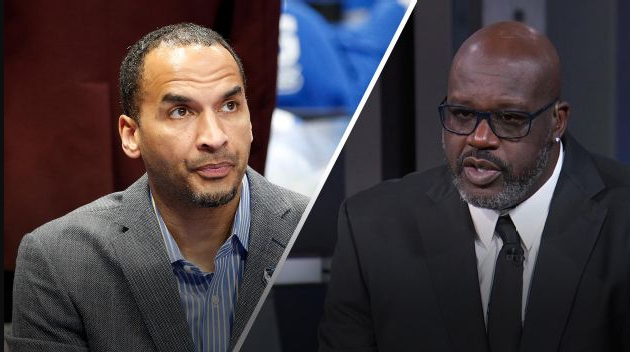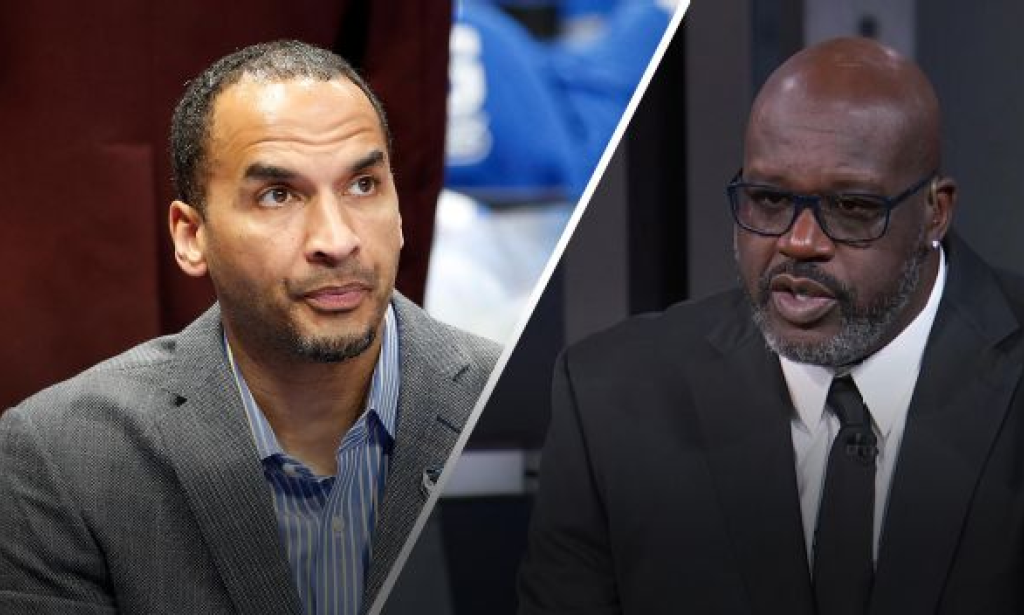Tim Bontemps: In conversations with sources around the NBA this week in the wake of Harrison's firing, there is a near universal belief that the Mavericks cannot remain as bad as their 3-9 record and minus-6.5 point differential suggests. Does that mean league insiders are projecting a playoff run?
No.
"I still think they could be good if everyone is healthy," a Western Conference executive told ESPN. "But you can't bet on that."
Even if healthy -- Dallas is far from it now, with Anthony Davis playing just five games and Kyrie Irving sidelined after an ACL tear in March -- the flaws within the roster remain. D'Angelo Russell, the one proven point guard on the active roster, has been completely marginalized by coach Jason Kidd in favor of Brandon Williams, who is on a partially guaranteed minimum deal.
And while Williams has shown flashes -- he had 17 points and nine assists in Wednesday's loss to the Phoenix Suns -- Dallas' lack of ballhandling and the imbalances across its roster are impossible to ignore.
"Until they have a feasible point guard, they're going to flounder," a West scout said.
With the Mavericks being the biggest topic around the league this week, the discussion quickly shifted to the question looming over whomever is tapped to replace Harrison as the lead executive: What does the future hold for Davis and Irving less than three months until the February trade deadline?
The belief, from sources I spoke to, is that the Mavs moving on from at least Davis, if not both stars, was the optimal strategy. Those moves would help maximize the 2026 first-round pick in a loaded 2026 draft class -- the only selection Dallas controls the rest of this decade -- to reposition the franchise around 2025 No. 1 pick Cooper Flagg.
"Absolutely," an Eastern Conference executive said when asked whether trading the two veteran stars was the right path for Dallas.
Brian Windhorst: Honestly, discussions with league executives this week surprisingly haven't centered around whether the Mavericks should trade Davis -- there seems to be a consensus that it is probably the correct strategy despite being another painful development to sell to the fan base. A team built around Irving and Davis has teeth, and it's not unreasonable to want to at least see the full roster in action; with Irving's rehab going well, it should be on the table.
But no, the discussions were whether the Mavs could get appropriate value when trading Davis.
"I just looked it up so I could say this to my owner if he asks me about it, AD is turning 33 in March and he's going to be in position next summer where he'll probably want a contract extension that would cost $70 million per year when he'd be 37," one general manager said.
"He's a great player, full stop. But when you consider a player at his age with his injury history, you'd also be trading for the stress of that extension. That plays into it."

Referencing Davis' injury history is tiresome. When he's healthy, he's a playoff series-changing player at both ends of the court. The Lakers' acquisition of him in 2019 ahead of their title run in the bubble changed the balance of power in the league. If the Mavericks come to the conclusion they need to readjust their timeline around Flagg -- for now that is an if despite what the strategy wings of opposing front offices might forecast -- there is the potential he could change the balance of power once again.
But the takeaway from conversations this week is whether Dallas will be able to get the kind of offers that make trading him a no-brainer.
"There's one thing I can say with absolute certainty," a veteran executive said. "If Dallas decides to trade AD, they won't get the same return the Lakers got for him."
No kidding.
Bontemps: One underappreciated aspect of moving on from Davis and Irving, however, is to get Dallas out of the luxury tax.
The Mavericks owe about $32 million in taxes with their current roster, according to ESPN's Bobby Marks, and are about $16 million over the luxury tax threshold this season. For a team headed nowhere, it's extremely hard to justify those expenses.
Moving on from their two stars by the deadline would allow Dallas to potentially duck the tax, reset its timeline and acquire future picks and players to restock an older roster with youth alongside their rookie sensation.



You must be logged in to post a comment.